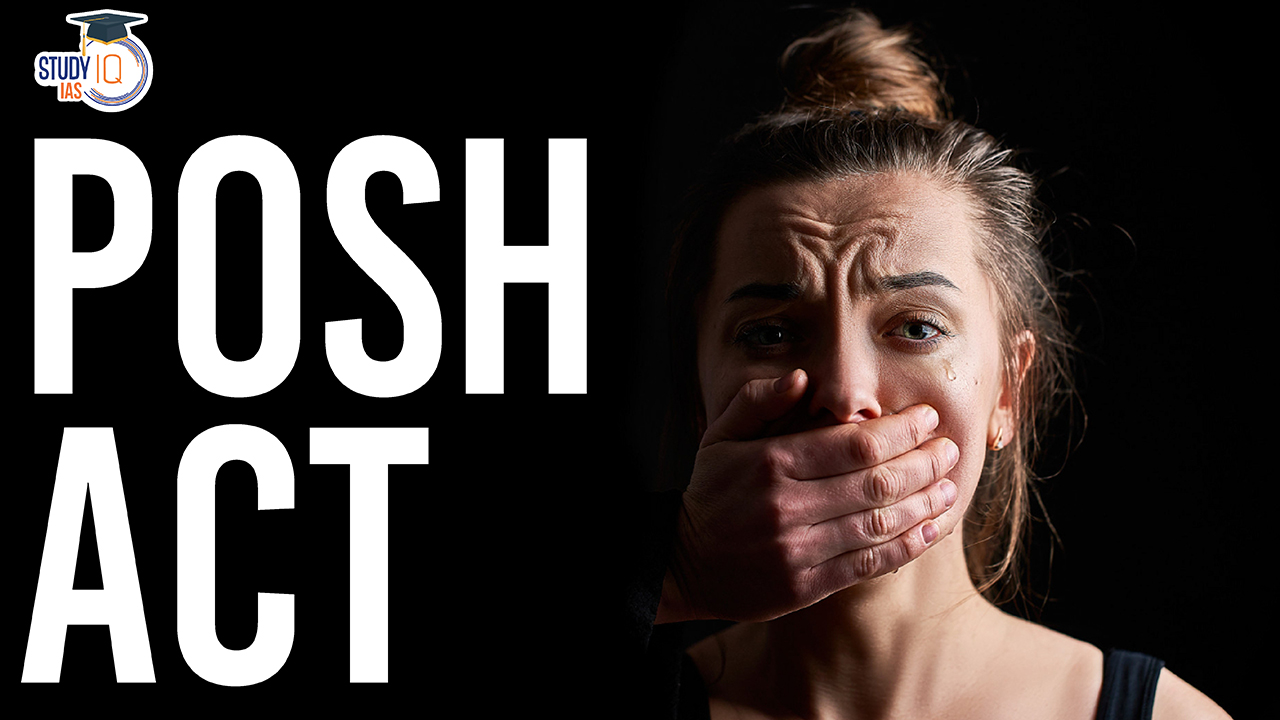Table of Contents
Context: More than half — 16 — of India’s 30 national sports federations lack an Internal Complaints Committee (ICC), mandatory under the 2013 PoSH Act, as highlighted in the Mary Kom-led government committee’s report.
We’re now on WhatsApp. Click to Join
POSH Act Overview
- The “POSH Act” in India refers to the Sexual Harassment of Women at Workplace (Prevention, Prohibition and Redressal) Act, 2013.
- Bhanwari Devi Incident (1992): Bhanwari Devi, a social worker with Rajasthan’s Women’s Development Project, was gang-raped for trying to stop a child marriage.
- Supreme Court 1997/Vishakha Guidelines (Vishaka vs. State of Rajasthan case in 1997):
- Following pleas against the crime, the Supreme Court recognized the lack of laws against sexual harassment at workplaces.
- The Court established guidelines to address this gap until relevant legislation could be passed.
- Sources for the Guidelines:
- Article 15 of the Indian Constitution, which prohibits discrimination based on religion, race, caste, sex, and place of birth.
- International conventions, notably the CEDAW General Recommendations, which India ratified in 1993.
- The Prevention of Sexual Harassment (PoSH) Bill:
- Introduced by the Ministry of Women and Child Development in 2007.
- Underwent several amendments before being enacted by Parliament on December 9, 2013.
Procedure Under Prevention of Sexual Harassment (PoSH) Act
|
Prevention of Sexual Harassment (PoSH) Act |
|
| Definition of Sexual Harassment | Under the 2013 law, sexual harassment includes “any one or more” of the following “unwelcome acts or behaviour” committed directly or by implication:
Additionally, it also lists down five circumstances that would constitute sexual harassment if they are connected to the above-mentioned acts:
|
| Coverage | Applies to all workplaces and covers all women, irrespective of their age or employment status. |
| Committees |
|
| Role Of ICC And LCC |
|
| Procedure For Complaint Under The Act |
|
| Actions After The ICC Report |
|
Challenges To Implementation Of POSH Act
- Inaccessibility in Informal Sector: The law is difficult to access for women in the informal sector, where over 80% of India’s female workforce is employed.
- High Rate of Underreporting: Factors like organisational power dynamics, fear of losing jobs, and the absence of tangible evidence contribute to significant underreporting.
- Gaps in ICC Formation: As seen with 16 out of 30 national sports federations, many organisations have not established an Internal Complaints Committee (ICC).
- Flaws in ICC Composition: Many ICCs suffer from having too few members or missing a mandatory external member.
- Unclear Legal Guidelines: There’s ambiguity in the law about conducting inquiries and a lack of awareness among women employees on how to report harassment.
Supreme Court Directions on POSH Act Implementation (Oct 2023)
- Appointment of ‘District Officer’: The Supreme Court emphasised the mandatory appointment of a ‘District Officer’ in each state and union territory as per Section 5 of the POSH Act.
- Time-Bound Assessment for Committees: The SC directed the Union of India, state governments, and union territories to conduct time-bound assessments to ensure the formation of Local Committees (LCs) and Internal Committees (ICs) across ministries, departments, organisations, and public sector undertakings.
- Capacity Building Initiatives: The Court advised regular orientation programs, workshops, and awareness campaigns to improve the expertise of LC and IC members.
Justice Verma Committee Recommendations
- Proposed establishing an employment tribunal instead of an ICC for addressing workplace sexual harassment.
- Suggested that the committee may adopt its own procedures for expedient complaint resolution.
- Recommended including domestic workers under the Act’s protection.
- Advised against penalising women for false complaints, to preserve the law’s objective.


 Places in News for UPSC 2025 for Prelims...
Places in News for UPSC 2025 for Prelims...
 Right To Information Act, Objective, Fea...
Right To Information Act, Objective, Fea...
 Indian Councils Act 1861, History, Provi...
Indian Councils Act 1861, History, Provi...





















